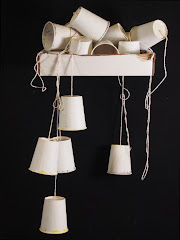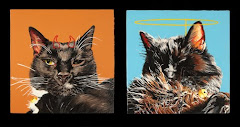IN EARLY JUNE 2000, I visited Art Basel for the first time. I was naive, which meant that I was subse-quently shocked and dismayed. The convention hall was filled with stalls, many of which were displaying objects I knew and loved (works by Piero Manzoni, Marcel Broodthaers), pieces made by people I admired from afar (Jeff Wall, Rodney Graham) or by artists of great historical merit (Piet Mondrian, Ed Ruscha). Then there were pieces by artists I knew personally. All of this gave me a charge of recognition mixed with a creeping sense of sadness; by the time I reached my hotel, unironically called the Hotel du Commerce, I realized I was suffering from a kind of equally unironic, decidedly old-fashioned heartbreak. For, more than being an assortment of proper names, the objects themselves had, up until that point, represented con-stellations of ideas to me, their primary form of exchange taking place in books and in journals, in buzzed late-night conversations in bars, and, increas-ingly (in ways that were deeply exciting), in the space of exhibitions. To see a\\ those ideas hung up on the trade-show walls ready for sale was just short of crushing. The next day, as I made my way back to the Messeplatz to take another stab at this new form of art viewing, I ran into an artist I knew. She was one of the very few artists there, and on hearing that she had just arrived, I cautioned her not to go in. This was no place for artists.
Needless to say, a lot has changed in the past ten years. Art fairs have had their apotheosis. They rival , and often exceed in prestige, large-scale group exhibitions; and, in a perverse reciprocity, many exhibitions now replicate the look and feel of the fairs—rabbit-warren arenas in which art is densely installed, where the thrill and velocity of the search for the next new thing is privileged over the slower temporality of the forming of consensus. One of the biggest changes has been the role that artists have been asked to play in this new formation. They are no longer expected (or allowed?) to stay away. Rather, these trade shows increasingly thrive on the presence of artists, who are routinely asked to make "special projects" specifically for the fair and to perform their ideas in the guise of lectures and panels. For many artists, the fairs are as viable and legitimate a form of exhibition as a museum show. While this makes me uncomfortable, I can't pass judgment. Artists are workers too, and the state of employment has changed dramatically, across the board. My father has a pension; I don't. Shit happens. Capitalism rules.
Helen Molesworth. Chief Curator at the Institute of Contemporary Boston












